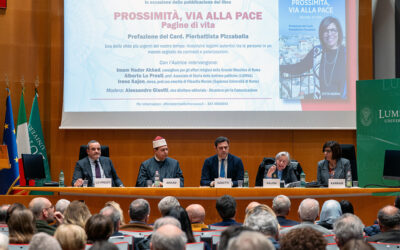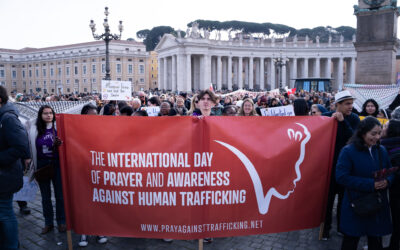The EoC annual report has been published for the 2011-2012 fiscal year. It is an agile text that gives a very complete picture of the life of the businesses that adhere to the principles of the Economy of Communion, of the activities that promote and bring ahead a culture of Communion throughout the world, and of activities throughout the world that are founded on the culture of communion.
Thumbing through the pages, one has the impression of throwing open a window and looking out onto a fascinating landscape with some contours that perhaps are still uncertain and limited, but coming away with a vision that leaves one with a real sense of hope in big ideas.
So what has happened in the world of the Economy of Communion between September 2011 and September 2012? As of now there are 800 business that adhere to the Economy of Communion. But even counting businesses that begin and die out, the fact remains that during the twenty years of its activity more than 1800 business have been associated with the EoC for at least twelve months. A particularly indicative fact, which attests to the vitality and the dynamism of the EoC proposal, especially when one considers the economic crisis and the diverse socio-economic contexts in which these experiences took shape.
What comes into light is how the life of EoC businesses throughout the world came into being in different ways: with the giving of a part of the earnings, with a direct contribution to social projects through the action of the same business (for example, labor inclusion of disadvantaged people), but above all with an economic behaviour that creates communion and brotherhood. As Chiara Lubich was fond of affirming: the EoC business strives to be “all built on love”
Then, one cannot help noticing the increase of EoC businesses in Africa, a continent that in 2011 hosted the first EoC school and now estimates an increase of 60%, with 16 new businesses.
It is also helpful to give a glance at the table on the distribution of profits. It shows how there is a continual flow of goods both as a business and as private individuals that not only encourages new sharing, but promotes cultural and economic change and leads to hope. The major profits come from two countries that are very different from one another: Belgium in old Europe, and Brazil, an economically emerging country that is in constant growth. This shows that the principles that lie beneath these businesses are universal. They transcend borders and produce reciprocity through projects that favour other productive activities.
There is also help for those in need, through the integration of income where it is needed, support for medical care, education and housing. The needy feel part of the project, not because they are cared for, but because they place themselves in a position of giving, in a virtuous circle that has involved young people and sparked growing interest in learning environments. To read the entire report Click here.
[1] Lubich, Chiara. L’economia di comunione – Storia e profezia (Rome: Citta Nuova, 2001), p. 52.





0 Comments